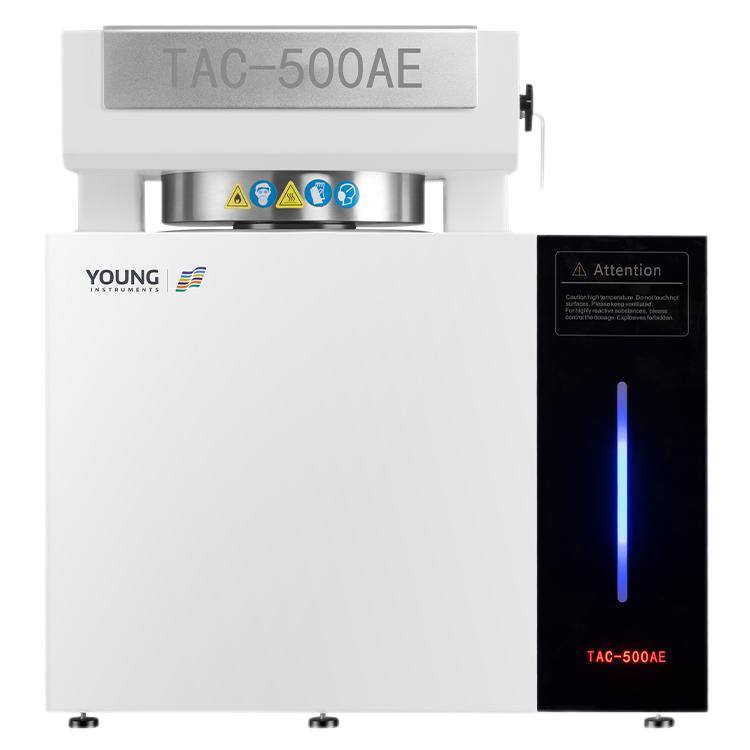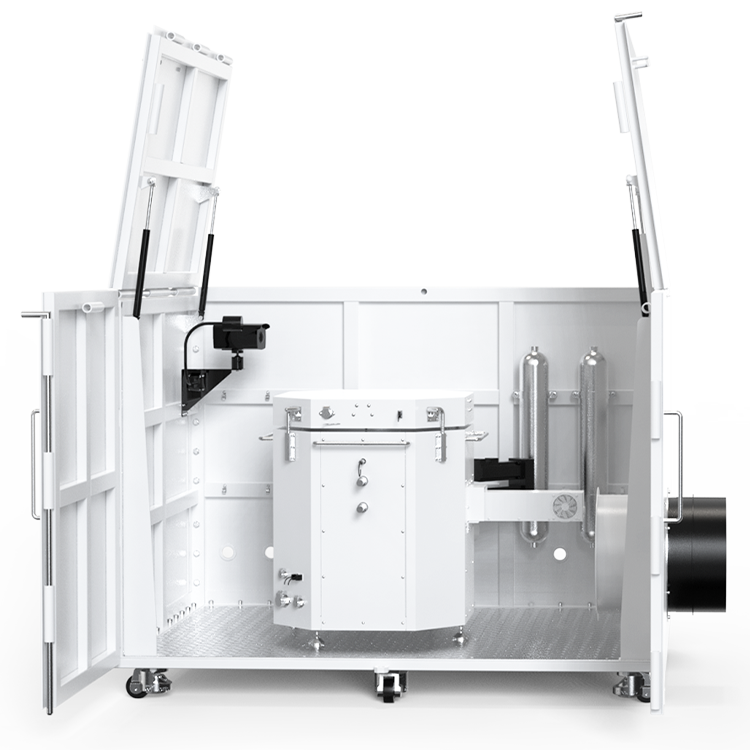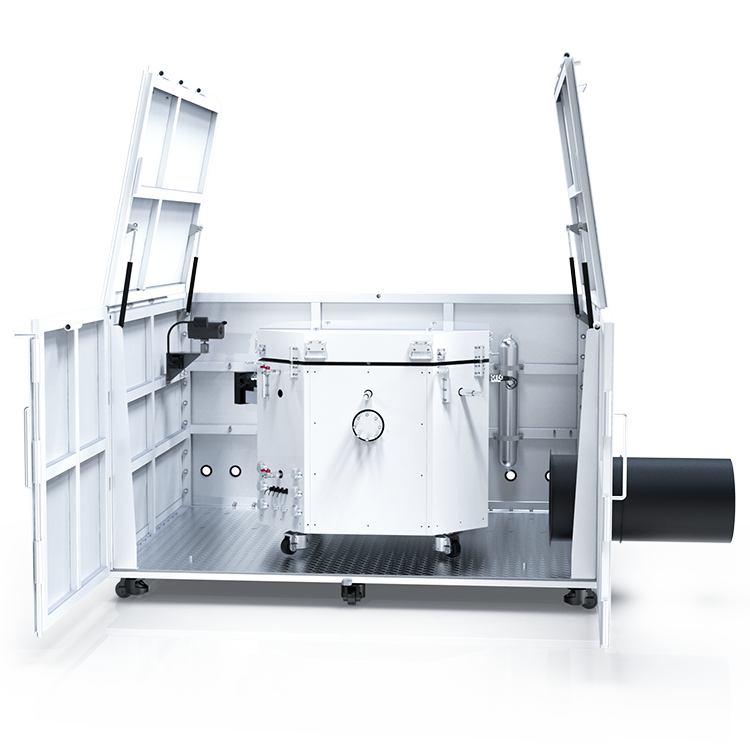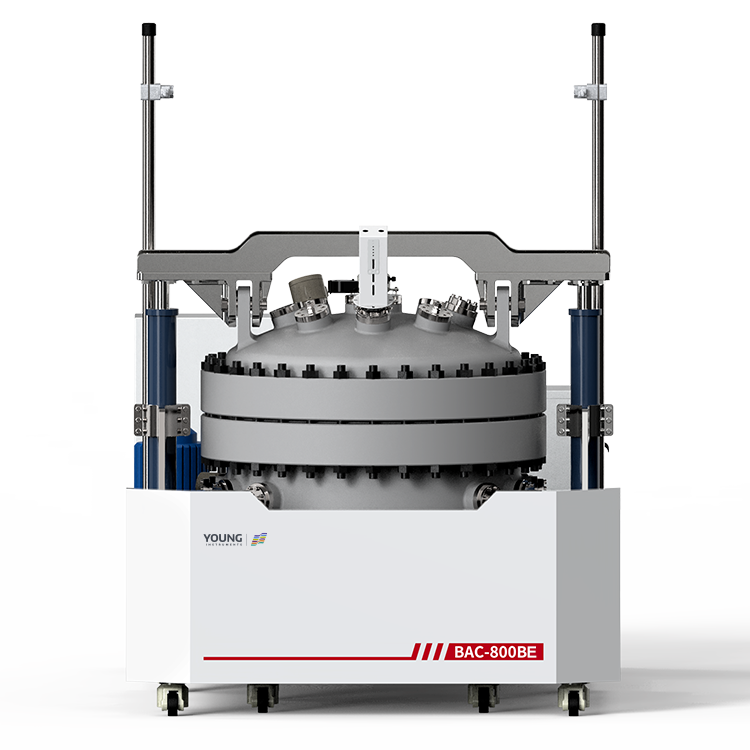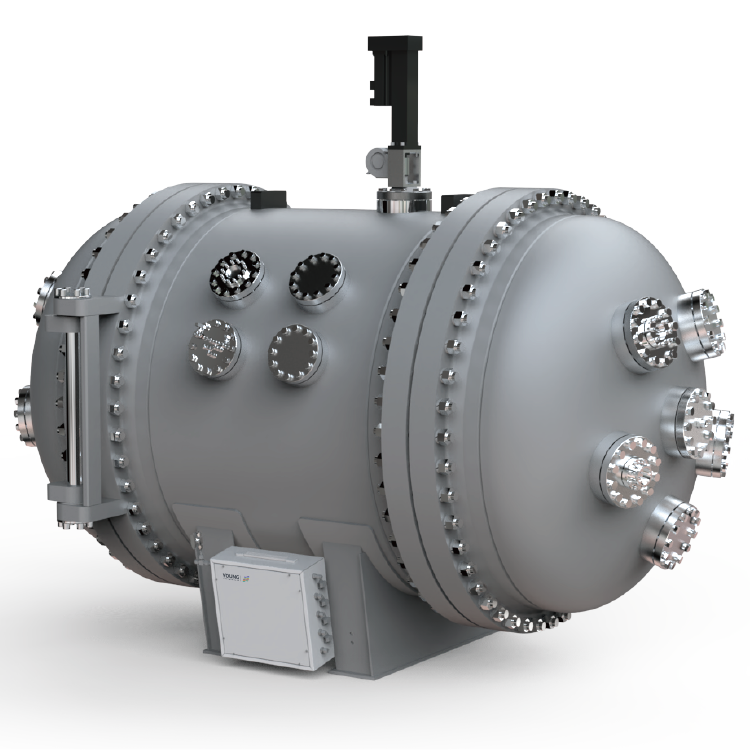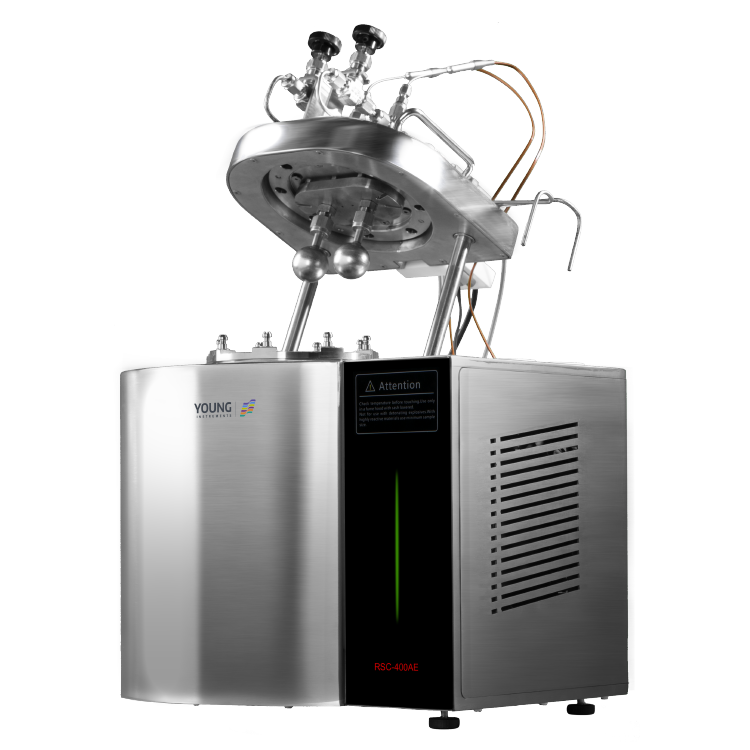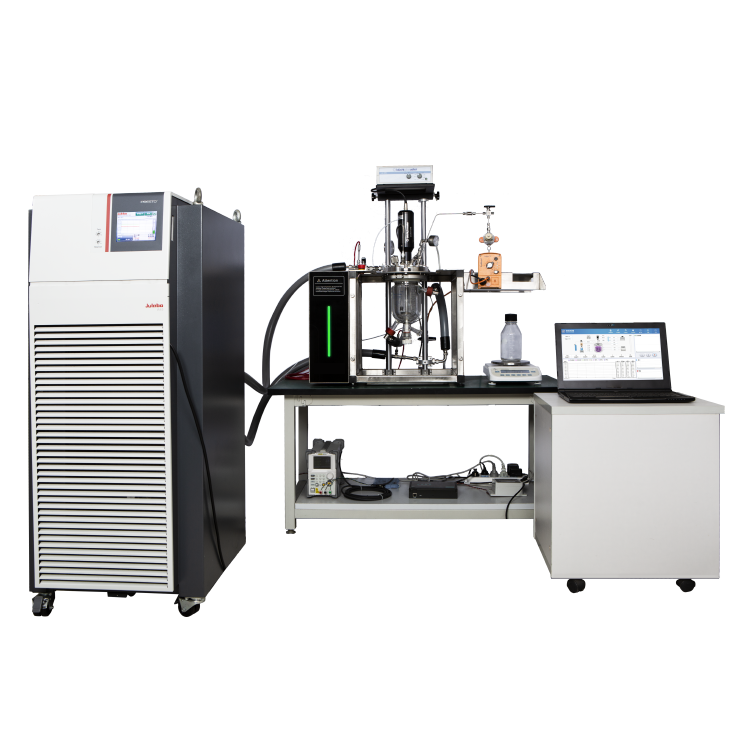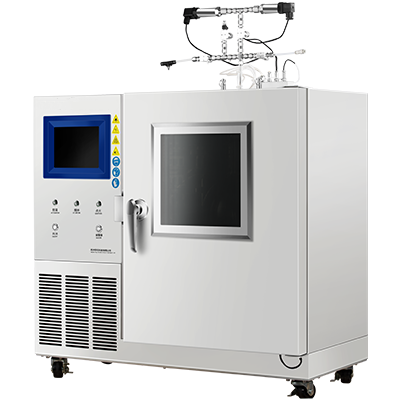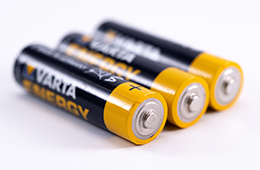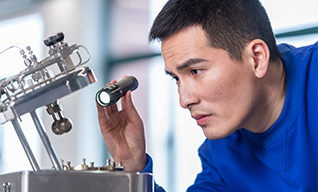What Makes the Thermal Conductivity Meter for Solids a Game-Changer in Material Analysis?
Discover Zeal Instruments’ comprehensive range of Thermal Conductivity Meters for Solids, revolutionizing material analysis across industries. From assessing lithium batteries to insulation materials, our instruments offer precision and reliability. With advanced features like automated testing, real-time data acquisition, and adherence to industry standards, including ASTM and ISO, Zeal Instruments ensures accurate measurements for research and quality control.

What is Thermal Conductivity?
Thermal conductivity is a crucial physical property that characterizes a material’s ability to conduct heat. It quantifies how effectively a substance can transfer heat through it when there’s a temperature difference across its ends. In simpler terms, it’s a measure of how quickly heat travels through a material. This property is of immense importance in various fields, including engineering, materials science, and physics.
Various Substances Suitable for Different Thermal Conductivity Meter for Solids
- Material Compatibility:Different materials demand specific measurement techniques. For example, while some materials may be well suited to steady-state methods (such as the hot plate method). But other materials may require transient techniques (such as laser flash methods). Zeal Instruments offers a range of thermal conductivity meters tailored to suit a variety of material types. Ensure accurate and reliable measurements on different samples.
- Sample Size and Test Time:Efficiency is paramount, especially when dealing with limited sample volumes or time-sensitive applications. Zeal Instruments provides solutions that cater to diverse sample sizes and testing durations, ensuring flexibility and convenience for researchers working with solids of varying dimensions.
- Accuracy and Precision:Precision in thermal conductivity measurement is imperative for obtaining reliable data. Zeal Instruments prioritizes accuracy through advanced sensor technologies and calibration processes, empowering researchers to make informed decisions based on precise thermal conductivity values.
Zeal Instruments: Providing Various Thermal Conductivity Meter for Solids to Meet Testing Needs Across Different Industries
Zeal Instruments stands as a frontrunner in the realm of thermal conductivity measurement solutions. With a commitment to innovation and precision, Zeal Instruments caters to diverse industries’ testing needs. Their range of Thermal Conductivity Meters for Solids ensures accurate and reliable analysis, facilitating quality control and research endeavors across sectors.
Product 1— Heat Flow Meter (HFM 510A): Unlocking the Potential of Low Thermal Conductivity Materials
The Heat Flow Meter (HFM 510A) sets the benchmark for automated and precise thermal conductivity testing of low thermal conductivity materials.

a. Testing Objects
Expanded Polystyrene
Extruded Polystyrene
PU Rigid Foam
Mineral Wool
Expanded Perlite
Foam Glass
Natural Fiber Materials
Cork
Wool
Aerogel
Concrete
Gypsum
b. Main Testing Parameters
Thermal Conductivity
c. Features: Automation at Its Finest
- Highly Automated: The HFM 510A boasts automatic lifting and lowering of the heating plate, automatic load force testing, thickness measurement, temperature control, and furnace door operation.
- Enhanced Precision: Dual heat flow sensors ensure rapid and efficient sample testing with independent temperature control for upper and lower plates.
- Advanced Cooling and Purging:External oil bath cooling and nitrogen gas purging facilitate sample drying, ensuring low environmental sensitivity and strong stability.
- Adaptive Measurement:The meter accommodates uneven sample surfaces and provides molds for particle sample preparation, minimizing sample preparation requirements.
- Software Flexibility:The accompanying software offers various thermal conductivity extension accessory modes, supports offline operation, and ensures experimental flexibility.
- Efficient Data Handling: Fully automated data collection, real-time monitoring, automatic report generation, and optional user login for historical record queries ensure seamless operation.
- Peripheral Expandability: With the built-in industrial computer and peripheral connectivity, the meter offers high peripheral expandability and convenience.
- Intelligent Design: A high-definition touchscreen display and intuitive human-machine interface contribute to an aesthetically pleasing and elegant user experience.
d. Standards
GB/T 10295
ASTM C518
ISO 8301
DIN EN 12667
Product 2— 3D Thermal Properties Analyzer (TCA 3DP-160): Unveiling the Secrets of Complex Structured Samples
The 3D Thermal Properties Analyzer (TCA 3DP-160) redefines thermal conductivity testing for complex structured samples with its non-contact thermography and dynamic 3D data inversion technology.

a. Testing Objects
Soft-pack Lithium Battery
Composite Materials
b. Main Testing Parameters
Thermal Conductivity
Specific Heat Capacity
c. Features: Breaking Boundaries with Non-Contact Thermography
- Versatile Testing:The TCA 3DP-160 utilizes non-contact thermography and dynamic 3D data inversion technology to evaluate the thermal conductivity and thermal diffusivity of complex structured samples.
- Adaptability: Capable of testing a wide range of sample sizes and surface flatness requirements.
- Non-Destructive Testing:Allows for accurate measurement of equivalent thermal conductivity of multi-layer thin film stacks without damaging the samples.
- Precision and Control: Uniform temperature across six-sided cold plates, precise oil bath temperature control, and adjustable ambient temperature ensure accurate results.
- Enhanced Accuracy: Non-contact measurement with automatic compensation for surface and support heat dissipation interferences enhances result accuracy.
- User-Friendly Interface:Simple instrument operation with fully automated experiment initiation and execution streamlines the testing process.
- Data Visualization: Color graphics display test data, predicted data, error data, and error assessment for quick validation of experimental results.
- Efficient Data Management:Automatic generation and saving of graphs and process data, with support for historical data query, ensures efficient data handling.
In addition to solid thermal conductivity meters, Super Test Technology also provides a series of thermal analysis instruments. Support the high-quality development of chemical, petroleum, metallurgical and other industries.
In addition to Thermal Conductivity Meter for Solids, Beyond Measure Science and Technology offers a range of thermal analysis instruments to support high-quality development in industries such as chemicals, petroleum, metallurgy, and more. The instruments include Oxygen Bomb Calorimeter, Large Battery Adiabatic Calorimeter, Small Battery Adiabatic Calorimeter, and Differential Scanning Calorimeter.
(1)Oxygen Bomb Calorimeter: The Oxygen Bomb Calorimeter, such as the ATC 300A, is designed to swiftly and accurately determine the calorific value of various combustible materials in compliance with standards such as GB/T384, GB/T 213, ASTM 4809, and ASTM D240. With a high-precision temperature control system, it ensures the accuracy and repeatability of results. Its user-friendly interface simplifies operation, making it accessible to operators across different industries. This instrument is commonly utilized in fields such as coal, metallurgy, construction, and petrochemicals to assess the energy content of materials.
(2)Large Battery Adiabatic Calorimeter: The Large Battery Adiabatic Calorimeter integrates thermal, electrical, and mechanical abuse methods, along with visible/infrared imaging and gas collection functions. It measures critical parameters like battery specific heat capacity, heat generation during charging/discharging, thermal runaway initiation temperature, maximum runaway rate, and adiabatic temperature rise. Test parameters include Thermal Runaway Onset Temperature, Maximum Rate of Temperature Rise, Adiabatic Temperature Rise, Specific Heat Capacity, and Heat Generation during Charging/Discharging. It is applicable in testing battery packs and battery cells.
(3)Small Battery Adiabatic Calorimeter: The Small Battery Adiabatic Calorimeter, derived from the adiabatic acceleration calorimeter, specializes in safety testing for small batteries. It gathers extensive safety performance data under diverse abuse conditions by synchronizing the collection of battery voltage, current, energy, temperature, pressure, and time data. Test parameters include Thermal Runaway Onset Temperature, Maximum Rate of Temperature Rise, and Adiabatic Temperature Rise. It finds application in testing both battery packs and battery cells.
(4)Differential Scanning Calorimeter: The Differential Scanning Calorimeter is a standard thermal analysis instrument, designed using the tower-type heat flow method principle. It measures the heat flow difference per unit time between the sample and a reference sample under programmed temperature control, with variations observed with temperature or time. Test parameters typically include thermodynamic and kinetic analysis. This instrument finds applications in various fields such as polymers, biomedicine, inorganic non-metallic materials, and more.
Conclusion
Zeal Instruments’ Thermal Conductivity Meters for Solids represent a paradigm shift in material analysis, offering unparalleled precision and reliability across various industries. With a commitment to innovation and precision, these instruments cater to diverse testing needs, from lithium batteries to insulation materials and beyond. By providing advanced features such as automated testing, accurate data collection, and compatibility with industry standards. Zeal Instruments enables researchers and engineers to make informed decisions based on accurate thermal conductivity measurements. Be it a heat flow meter (HFM 510A), a 3D thermal performance analyzer (TCA 3DP-160). Zeal Instruments both set the standard for excellence in thermal conductivity testing, driving innovation and advancement in materials science and engineering.








